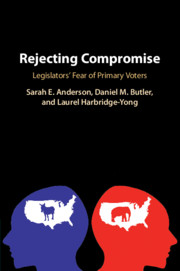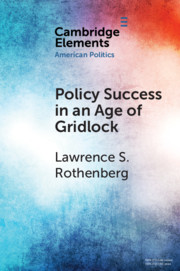Refine search
Actions for selected content:
11 results
Under Cover: Substituting Formal IOs during Hard Times
-
- Journal:
- Ethics & International Affairs / Volume 39 / Issue 2 / Summer 2025
- Published online by Cambridge University Press:
- 22 August 2025, pp. 130-144
-
- Article
-
- You have access
- Open access
- HTML
- Export citation
7 - Making Law
-
- Book:
- We Hold These Truths
- Published online:
- 30 November 2023
- Print publication:
- 21 December 2023, pp 216-247
-
- Chapter
- Export citation
12 - Practitioner Views of Corporate Political Responsibility
- from Section V - Implementing Corporate Political Responsibility: Opportunities and Challenges
-
-
- Book:
- Corporate Political Responsibility
- Published online:
- 16 November 2023
- Print publication:
- 30 November 2023, pp 355-388
-
- Chapter
- Export citation
4 - The Political Crisis
-
- Book:
- Post-Truth American Politics
- Published online:
- 28 September 2023
- Print publication:
- 12 October 2023, pp 43-63
-
- Chapter
- Export citation
16 - The Overlapping Crises of Democracy, Globalization, and Global Governance
- from Part V - International/Global Democracies
-
-
- Book:
- Democratic Multiplicity
- Published online:
- 21 July 2022
- Print publication:
- 04 August 2022, pp 307-309
-
- Chapter
-
- You have access
- Open access
- HTML
- Export citation
7 - Compromise, Voter Punishment in Primaries, and Legislative Gridlock
-
- Book:
- Rejecting Compromise
- Published online:
- 28 January 2020
- Print publication:
- 20 February 2020, pp 129-146
-
- Chapter
- Export citation
1 - Rejecting Compromise, Getting Gridlock
-
- Book:
- Rejecting Compromise
- Published online:
- 28 January 2020
- Print publication:
- 20 February 2020, pp 1-14
-
- Chapter
- Export citation

Rejecting Compromise
- Legislators' Fear of Primary Voters
-
- Published online:
- 28 January 2020
- Print publication:
- 20 February 2020

Policy Success in an Age of Gridlock
- How the Toxic Substances Control Act was Finally Reformed
-
- Published online:
- 04 July 2018
- Print publication:
- 27 June 2018
-
- Element
- Export citation
Pivotal Politics and the ideological content of Landmark Laws
-
- Journal:
- Journal of Public Policy / Volume 39 / Issue 1 / March 2019
- Published online by Cambridge University Press:
- 16 November 2017, pp. 115-142
-
- Article
- Export citation
Democracy without Solidarity: Political Dysfunction in Hard Times – Introduction to Special Issue
- Part of
-
- Journal:
- Government and Opposition / Volume 52 / Issue 2 / April 2017
- Published online by Cambridge University Press:
- 29 December 2016, pp. 185-210
-
- Article
-
- You have access
- HTML
- Export citation
